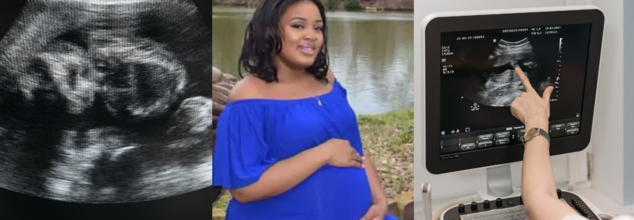- Health Conditions A-Z
- Health & Wellness
- Nutrition
- Fitness
- Health News
- Ayurveda
- Videos
- Medicine A-Z
- Parenting
- Web Stories
Childbirth Charities Warn Against Hands-Free Feeding In Baby Slings

Credits: Canva
Childbirth charities, including the National Childbirth Trust (NCT) and the Lullaby Trust, have issued warnings about the dangers of hands-free breastfeeding or bottle feeding when a baby is carried in a sling. Their updated guidance highlights the risks, especially for premature babies and those under four months old, due to the potential for airway obstruction.
This warning follows an inquest into the tragic death of six-week-old Jimmy Alderman, who was being breastfed in a baby carrier at home. The coroner’s report found that there was little publicly available information on the safe positioning of babies in slings or the risk of suffocation while feeding.
The Tragic Case That Prompted the Warning
In October 2023, Jimmy Alderman, an infant from London, was breastfed while in a sling but was positioned too far down, leading to a blocked airway within five minutes. Despite immediate resuscitation efforts, he passed away three days later.
Senior coroner for west London, Lydia Brown, noted the absence of clear visual guidance on safe versus unsafe baby postures in slings. She pointed out that existing NHS literature offered no guidance or warnings on this issue.
How Have Charities Responded?
Following the coroner’s report and feedback from Jimmy’s parents, the NCT reviewed its online information regarding baby slings and carriers. The updated guidance explicitly states that hands-free feeding while moving around is unsafe, particularly for:
- Babies under four months old
- Premature babies
- Babies with underlying health conditions
The Lullaby Trust has also revised its advice, now recommending that babies should always be removed from the sling before feeding. CEO Jenny Ward explained, “We are constantly reviewing the evidence and research, as there is currently no robust evidence on how to feed hands-free safely, which is why we changed our guidance to advise against it.”
Why Is Hands-Free Feeding in Slings Dangerous?
Young babies lack strong neck muscles and cannot lift their heads independently. If a baby’s head tilts forward or is pressed against fabric, their airway can become blocked, leading to suffocation within minutes. Additional risks include:
Fabric Obstruction: The sling or a caregiver’s clothing can press against the baby’s face, preventing proper breathing.
Incorrect Sling Fitting: A poorly adjusted carrier may cause the baby’s body to slump, further restricting airflow.
Head Trauma: Babies in improperly secured slings may suffer head injuries if they fall or experience sudden movements.
How to Use Baby Slings Safely
While baby slings can be a convenient way to carry an infant, proper positioning is crucial for safety. The NCT and NHS recommend the following guidelines:
- The sling should be tight enough to keep the baby secure.
- The baby’s face should always be visible when glancing down.
- The baby should be upright, facing outwards, not pressed against the caregiver’s body.
- The baby’s head should be close enough to kiss.
- The material should never cover the baby’s nose or mouth.
Future Research and Ongoing Safety Efforts
In response to concerns raised by parents and medical professionals, the Lullaby Trust is helping to fund research aimed at developing clearer safety guidelines for baby slings and carriers. The goal is to provide better information for parents and caregivers to prevent similar tragedies.
Additionally, the NHS advises parents to ensure that sling fabric does not cover their baby’s head and to remain attentive to their infant’s breathing while using a carrier.
Adriana Smith Update: Baby Born From A Brain-Dead Woman On Life Support In Georgia

Adriana Smith (Center), source: WXIA-TV
Some call it a miracle, and some call it a lack of choice. A baby is born in Georgia from a woman who was declared brain dead and was put on life support. She is 31-year-old Adriana Smith, who was about six months into her pregnancy.
Her mother April Newkirk told WXIA-TV that her daughter had intense headaches more then four months ago and went to Atlanta's Northside Hospital. There, she received medication and was released. However, next morning, her partner woke to her gasping, and called the emergency number 911.
Emory University Hospital determined she had blood clots in her brain and was declared brain dead, at that time she was eight weeks pregnant. She was kept on life support ever since, and the baby was born through an emergency cesarean section on Friday.
The baby is named Chance, and weighs about 1 pound and 13 ounces, and is born prematurely in six months. The baby is currently in the neonatal intensive care unit.
Miracle Or A Lack Of Choice?
While many may see it as a miracle, however, many have questioned the choice and agency of a woman and her right to live with dignity.
Her mother said that Smith was kept on life support due to Georgia's anti-abortion law. This has sparked questions about ethics and the case had exploded into a national and international news. Her mother also confirmed that the fetus had been growing while she was put on life support.
"WE did not have a choice or say about it. We want the baby. That's a part of my daughter. But the decision should have been left to us, not the state," told Newkirk, as reported in the Guardian.
There Is A Law, But Where Is The Logic?
Steven Ralston, the director of the maternal fetal medicine division at George Washington University told the Washington Post that "the chances of there being a healthy newborn at the end of this is very, very small." Rightly so, the baby is born in six months of pregnancy, is premature and is currently in NICU.
Newkirk too confirmed about fluid in baby's brain and that the baby maybe blind, or may no be able to walk.
A Controversial Case
Abortion, under Georgia law, is banned after six weeks of pregnancy. Certainly, as this case seems, there is no scope of exception either. The ban also contains provisions that strengthens the concept of "fetal personhood", a doctrine that holds embryos and fetuses should be considered people, and, as such, are entitled to full legal rights and protection.
Smith's case has ignited a national debate concerning medical consent and the far-reaching implications of anti-abortion laws. For years, abortion rights advocates have warned that establishing fetal personhood could create conflicts between the rights of a pregnant individual and those of the fetus. Since Roe v. Wade was overturned in 2022, numerous pregnant individuals have reported being denied medically necessary abortions during emergencies due to these bans.
The hospital currently treating Smith has not commented on her specific case, citing privacy. However, it released a statement indicating its process: "uses consensus from clinical experts, medical literature, and legal guidance to support our providers as they make individualized treatment recommendations in compliance with Georgia’s abortion laws and all other applicable laws."
Conflicting Interpretations of Georgia Law
Georgia Attorney General Chris Carr's office has stated that the state’s six-week abortion law does not mandate medical professionals to keep brain-dead individuals on life support. According to spokesperson Kara Murray, "Removing life support is not an action with the purpose to terminate a pregnancy."
However, not surprisingly, some anti-abortion advocates hold a different view. Georgia State Senator Ed Setzler, who sponsored the state's abortion ban, told the Associated Press, "it is completely appropriate that the hospital do what they can to save the life of the child." He added, "I think this is an unusual circumstance, but I think it highlights the value of innocent human life. I think the hospital is acting appropriately."
Smith, said Newkirk, would be taken off life support on Tuesday.
Women Are Now Waiting More Before Becoming A Mother, Age Trend Shows Motherhood From 2016 to 2023

Credits: Canva
Are more and more women delaying their motherhood in the United States? Data seems to show this trend. The average age of mothers at childbirth in the United States have continued to rise. A new report released on June 13 by the National Vital Statistic System (NVSS), provides the shift in age trends between 2016 and 2023. The study, conducted by Andrea D. Brown, Ph.D., M.P.H., and her colleagues at the National Center for Health Statistics.
A Shift Towards Later Motherhood
The researchers found a clear increase in the mean age of mothers at the time of their first birth. In 2016, the average age of a first-time mother was 26.6 years. By 2023, this had risen to 27.5 years — nearly a full year’s difference in just seven years.
But the trend isn’t limited to first-time mothers. For women having their second child, the average age rose by one year, while those giving birth to a third child or beyond saw an increase of 0.9 years. These shifts reflect a broader societal trend toward delayed childbearing, often influenced by factors such as education, career planning, financial stability, and access to reproductive health services.
What The Trends Show Across Demographics
Notably, the increase in maternal age was observed across all racial and ethnic groups, with rises ranging from 0.4 to 1.4 years between 2016 and 2023. This indicates that the pattern of delayed childbearing is not confined to one particular group but is a nationwide phenomenon affecting diverse communities.
Urbanization also plays a role. The report shows a consistent rise in maternal age at first birth across all types of counties — from densely populated urban areas to rural regions. Women living in large metropolitan counties had the highest mean age at first birth in 2023, averaging 28.5 years. In contrast, women in noncore (rural) counties had the lowest average at 24.8 years. Nonetheless, even these rural areas experienced an increase in age, with the average rising by 0.7 to 0.9 years depending on the county type.
“The mean age of mothers at childbirth in the United States increased from 2016 through 2023, continuing the long-term trend toward delayed childbearing,” the authors noted. This upward shift builds on similar findings from previous years and highlights a steady cultural change in how and when women choose to have children.
Delaying childbirth can have both benefits and challenges. On one hand, it often correlates with improved financial and emotional readiness, access to healthcare, and better outcomes for children. On the other hand, advanced maternal age can also bring higher risks for complications during pregnancy and childbirth, making ongoing medical monitoring and support essential.
Why Does It Matter?
Understanding maternal age trends helps public health experts, policymakers, and healthcare providers better plan for the needs of pregnant women and infants. It also reflects broader shifts in societal expectations, gender roles, and reproductive choices in the United States today.
As this trend continues, experts are calling for more inclusive policies and better support systems for parents — no matter when they decide to start their families.
Why US Moms Are Facing A Decline In Mental Health?

Credits: Canva
Only about one in four mothers in the United States now say they are in “excellent” mental or physical health, according to a new study that reveals a sharp decline in maternal well-being over the past several years. The findings, published in JAMA Internal Medicine on Tuesday, underscore growing concerns around the mental health crisis affecting American families—especially mothers.
A Steep Decline Over Time
The study analyzed health data from 198,417 mothers with children under the age of 18, tracking changes from 2016 to 2023. Researchers found a significant drop in self-reported mental health among mothers during this period, with a smaller but still notable decline in physical health.
Using a four-point scale (excellent, very good, good, and fair/poor), the study revealed that the percentage of mothers reporting “excellent” mental health plummeted from 38.4% in 2016 to just 25.8% in 2023. At the same time, those reporting “good” mental health increased from 18.8% to 26.1%, while “fair/poor” mental health rose from 5.5% to 8.5%.
Physical health scores also declined. The proportion of moms reporting “excellent” physical health dropped from 28.0% to 23.9%. Meanwhile, the percentage describing their physical health as “good” grew from 24.3% to 28.1%, while those in the “fair/poor” category remained relatively stable.
Vulnerable Groups Hit Hardest
The mental health decline was seen across all socioeconomic groups, but it was most pronounced among single mothers, women with lower levels of education, and those whose children are covered by public insurance. These findings echo long-standing concerns about disparities in health access and outcomes among women and underserved populations.
While the study also looked at male parents and noted similar downward trends in physical and mental health, fathers consistently reported better overall health than mothers. In 2023, the gap was particularly stark, with female parents 4 percentage points more likely than male parents to report “fair/poor” mental health.
Parenting Under Pressure
This latest research builds on earlier warnings from public health officials. In 2023, former U.S. Surgeon General Dr. Vivek Murthy released an advisory titled "Parents Under Pressure," which called attention to the toll caregiving takes on mental health.
“The work of parenting is essential not only for the health of children but also for the health of society,” Murthy wrote. “The well-being of parents and caregivers is directly linked to the well-being of their children.”
The authors of the JAMA study echoed that sentiment, linking their findings to broader national health trends, including rising rates of depression and anxiety among reproductive-age women.
What’s Behind the Decline?
While the study did not explore specific causes, researchers cited several possible contributors to the ongoing decline in maternal mental health. These include:
- Limited access to mental health services
- Social isolation
- Increased substance use disorders
- Broader societal stressors such as inflation, systemic racism, gun violence, and climate change
The authors also referenced a growing body of research suggesting that maternal health may be an early warning sign of declining public health overall, writing: “Our findings are supportive of the claim made by some scholars that maternal mortality may be a canary in the coal mine for women’s health more broadly.”
As concerns around maternal mental health intensify, the study highlights the urgent need for more targeted policies and accessible support systems to improve the well-being of mothers—and by extension, their children and families.
© 2024 Bennett, Coleman & Company Limited

